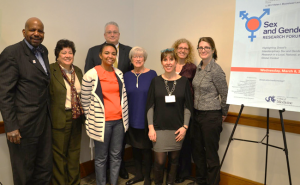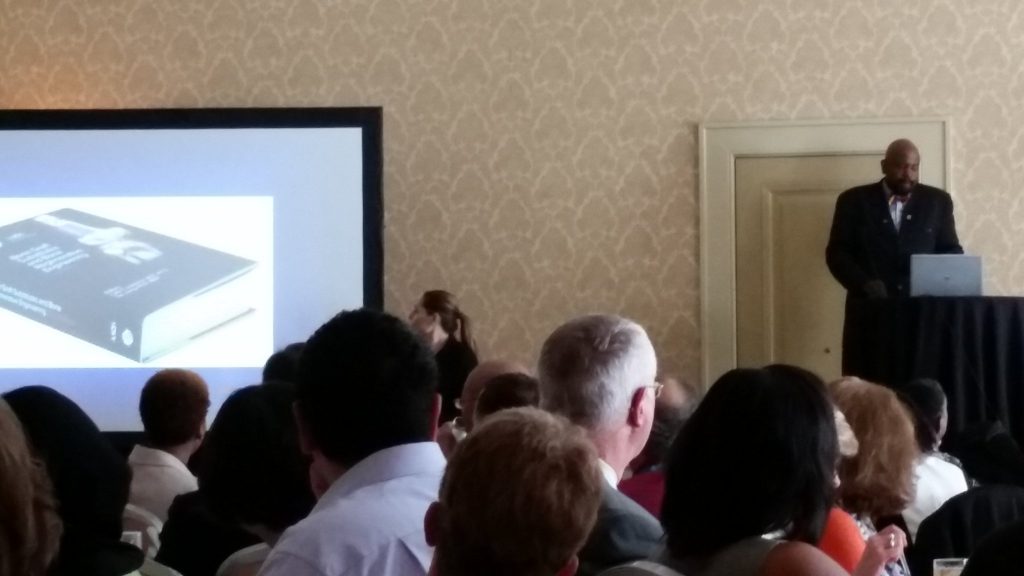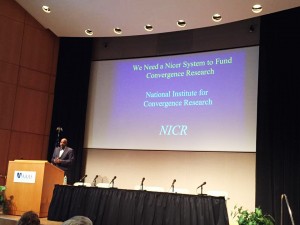By Cato T. Laurencin, M.D., Ph.D.
 The Helen I. Moorehead-Laurencin, M.D., Sex and Gender Research Forum is a very important program of the Institute for Women’s Health and Leadership at Drexel University. This year’s forum took place on March 8, International Women’s Day. This interactive program highlighted Drexel’s interdisciplinary research focused on sex and gender in a local, national and global context. I was excited to give the forum’s opening speech and introduce my beloved late mother, Dr. Helen Laurencin, to the attendees. It was well attended by students, faculty, and staff who represented several different schools and colleges at Drexel, as well as many members of the community. The Forum also received media coverage from the local ABC affiliate, WPVI-TV.
The Helen I. Moorehead-Laurencin, M.D., Sex and Gender Research Forum is a very important program of the Institute for Women’s Health and Leadership at Drexel University. This year’s forum took place on March 8, International Women’s Day. This interactive program highlighted Drexel’s interdisciplinary research focused on sex and gender in a local, national and global context. I was excited to give the forum’s opening speech and introduce my beloved late mother, Dr. Helen Laurencin, to the attendees. It was well attended by students, faculty, and staff who represented several different schools and colleges at Drexel, as well as many members of the community. The Forum also received media coverage from the local ABC affiliate, WPVI-TV.
I want to congratulate the Institute for Women’s Health and Leadership at Drexel for putting on such a fine forum. View the Forum.





 As part of the Convergence: The Future of Health Workshop, I contributed some remarks to the “Challenges in Funding Convergence” panel held in Washington DC on March 25th. During this section, I discussed about my experiences finding funding for engineering research in the biomedical sciences. I shared some success stories from individuals in the Institute for Regenerative Engineering which focused on how engineers and physicists receive funding from federal agencies, as well as how they were treated by peer review at federal funding sources. I also provided several recommendations as to how the funding and review system could be changed to better include engineers and physicists who conduct convergence research.
As part of the Convergence: The Future of Health Workshop, I contributed some remarks to the “Challenges in Funding Convergence” panel held in Washington DC on March 25th. During this section, I discussed about my experiences finding funding for engineering research in the biomedical sciences. I shared some success stories from individuals in the Institute for Regenerative Engineering which focused on how engineers and physicists receive funding from federal agencies, as well as how they were treated by peer review at federal funding sources. I also provided several recommendations as to how the funding and review system could be changed to better include engineers and physicists who conduct convergence research.